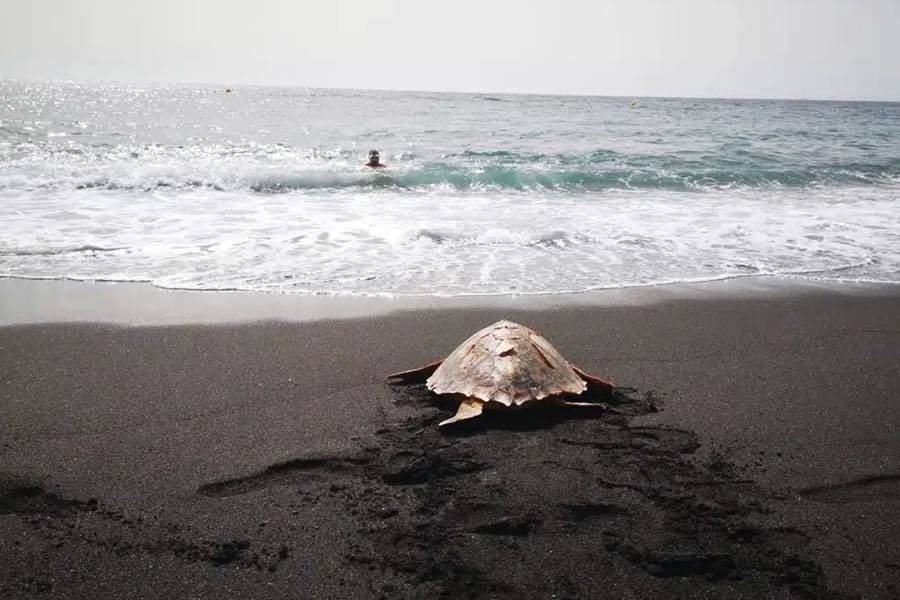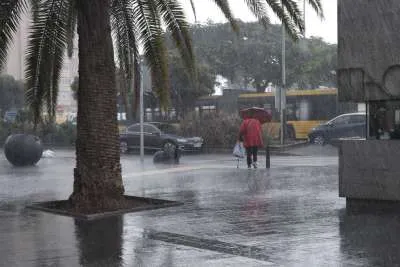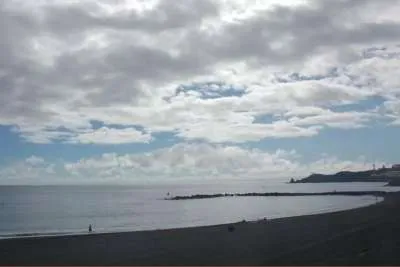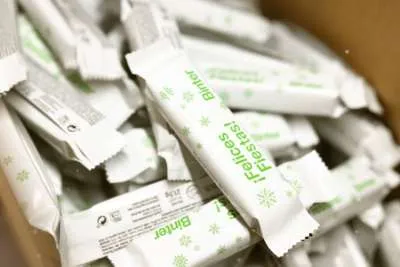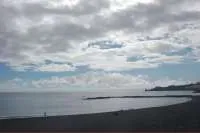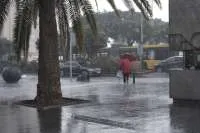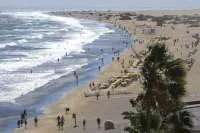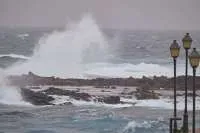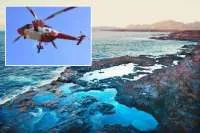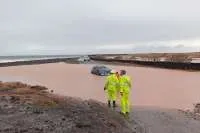Two turtles are returned to the sea after being successfully treated at the La Tahonilla Centre
- 15-04-2023
- Tenerife
- Canarian Weekly
Two Caretta caretta turtles have been released back into the sea from La Nea beach in El Rosario, after being treated at the La Tahonilla Centre (CRFS), the Tenerife Cabildo’s marine life recovery centre, for various ailments.
The first one was spotted on March 11th while swimming with difficulty near the coast of Los Gigantes, in Santiago del Teide. The turtle had a large piece of fishing net attached to its right front flipper, which was causing it obvious distress, so she was taken to the CRFS to be treated and rehabilitated.
After the first inspection, it was decided that the entangled fin should be amputated due to having clear symptoms of necrosis and the risk of the disease spreading to the rest of the turtle’s body. Approximately three weeks after the amputation and treatment, the turtle passed the rehabilitation and recovery period and was returned to the sea to its natural environment.
The second one was found on March 7th while swimming several miles from Puerto Colón, in Costa Adeje. The turtle was swimming with difficulty and obvious symptoms of exhaustion. In addition, it showed visible signs of fungi on its shell. This turtle was recovered by a group of divers and handed over to the Adeje Local Police before being transferred to La Tahonilla.
After closer inspection, they found that the fungi was not only affecting the shell, but also the fins and plastron of the turtle. During her recovery period, she was administered anti-fungals and a specific therapy using lasers and ultraviolet rays to complete the treatment. Finally, when the disease was overcome for two weeks, the turtle was returned to the sea to continue its evolutionary process.
In 2022, the CRFS treated 107 turtles, 104 were of the Caretta caretta species and three were green turtles (Chelonia mydas). Rescued turtles are cared for and fed until they reach the point where they are capable of swimming properly and hunting for themselves, at which point they are ready to be released back into the sea.
The Caretta caretta turtle is a species of marine reptile that is nicknamed 'boba'. It is the most common turtle in the waters around the Canary Islands, and they stay here almost all year round, but especially during the spring-summer months.
Their diet is mainly carnivorous and it is the natural predator of jellyfish. However, it is common for turtles to mistake plastic bags, or other marine debris, for jellyfish and ingest large amounts of plastic due to this confusion.
Other articles that may interest you...
Trending
Most Read Articles

Featured Videos
A Vision of Elvis Tenerife Promo
- 10-05-2025
TEAs 2025 Highlights
- 17-11-2025


